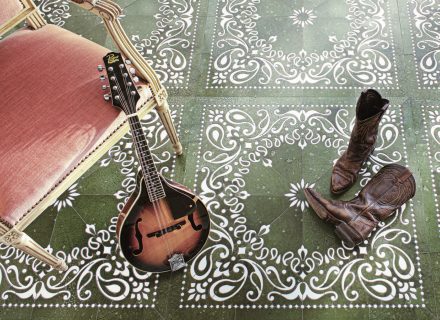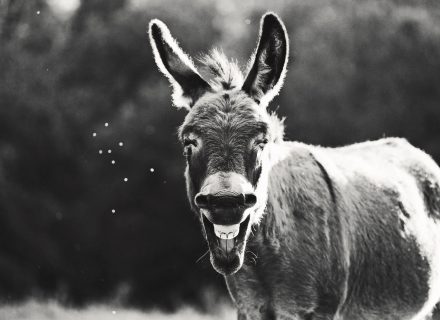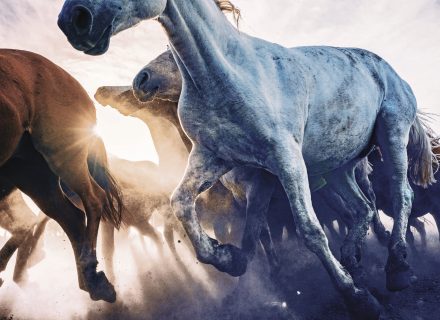Ray Benson, the famed frontman of Asleep at the Wheel, celebrates the band’s 50th anniversary and tells us how they’ve kept going all these years.
Cowboys & Indians: Congratulations on the 50th anniversary of Asleep at the Wheel. But we understand you had a health scare that temporarily rained on your parade.
Ray Benson: Well, yeah. I was an early adopter of the COVID.
C&I: Always have to be fashionable, huh?
Ray: [Laughs.] I’m always the first in line. Yeah, we’d been traveling for a few weeks, and I guess that’s how I got it. And I had a couple of bad weeks — but nothing like a lot of people have had.
C&I: What was your first reaction when you got the diagnosis?
Ray: Well, unfortunately, they did not have enough tests at the beginning. So I went to get tested, and they just sent me home, saying, “You’re fine. You don’t have the flu.” So I spent four more days in bed, and then went back to the doctor and said, “This is not right. Something’s wrong.” And by then she was able to give me a COVID test. So I was already on the mend when I found out. I mean, I wasn’t feeling good, but I was on the mend. And so it wasn’t so bad. I was just, you know, sort of out of it for about a week. And then another week of just trying to get back to normal.
I just told the guys, “OK, look. We’ve faced plenty of adversities. This one is probably the biggest one, but we always seem to make it out at the end with something.”
C&I: But even after you recovered, “normal” must have remained pretty doggone elusive because of the shutdown, right?
Ray: Yeah, it was a big blow. Because, first, on March 7, we were about to embark on a new recording project and a film, and of course a year of heavy touring. And overnight, it all literally went away. And then two weeks later, like I said, I got sick. So basically, I just told the guys, “OK, look. We’ve faced plenty of adversities. This one is probably the biggest one, but we always seem to make it out at the end with something.” And as it turned out, it worked out good. I was able to get healthy. I lost 35 pounds. I’ve been able to get my back and my knees in better shape than they were. And I wrote a lot of songs. And then, in the meantime, because I have a recording studio here in my home, the band and — we made an album.
C&I: Back before this recent bump in the road, while you were making your initial plans to celebrate the 50th anniversary of Asleep at the Wheel, did you ever find yourself marveling that you’ve been able to keep on keeping on for so long? Like, did you ever find yourself thinking, “After all these years, not only am I physically able to do this — and I’m having fun doing this — but when I do go out there, I can be reasonably sure there will be people who want to hear it”?
Ray: Yeah. That really is an astute observation. Because, yeah, there were days at the start when you’d show up, and, well, there weren’t many people there. And also, with us doing the kind of music that we do, it’s not like something that’s on the hit radio, or mainstream television even. So we’re very fortunate that there’s a subset of people that, all over the world, still want to hear us. You know?
...we’re very fortunate that there’s a subset of people that, all over the world, still want to hear us.
C&I: You’ve always been at the forefront of not only preserving Texas Swing, but keeping it vital and necessary. Do you feel a certain responsibility weighing on your shoulders because of that?
Ray: It doesn’t weigh on me, really. But I certainly feel the responsibility to play the kind of music that we set out to play, yeah. It’s a broad range of music, and we don’t just do western swing. But the instrumentation of the band is that of a Texas Swing band. In other words, I think I’d be remiss if I still called it Asleep at the Wheel with two synthesizers and a drum machine and me, you know? So yeah, I do feel a responsibility to have real fiddles, real upright bass, real piano, etc.
C&I: What has kept you going during the occasional downturns in your career?
Ray: You know, when disco hit back in the ’70s, that kind of threw us for a loop in terms of our playing live music. And we didn’t have a record deal for four years in the ’80s. But I’ll tell you what: I love doing this. And whenever I contemplated doing other things, I went, “Well, you know what? I probably won’t be very good at that.” And so I’d tell the guys, “OK, we’ve still got some shows.” And it was really like one day at a time. Like, “OK, let’s just figure out this day, and then we’ll figure out the next one.”
And the thing that really made it better was when there would be a great show, a great night, and somebody from the audience would go, “Don’t ever quit. Don’t ever stop, man. There’s nothing else like this.” What he meant was that level of musicianship in a band playing that variety of music on the road every night. That’s why Asleep at the Wheel has kept going. And why I have kept going.
From our February/March 2021 issue.

















